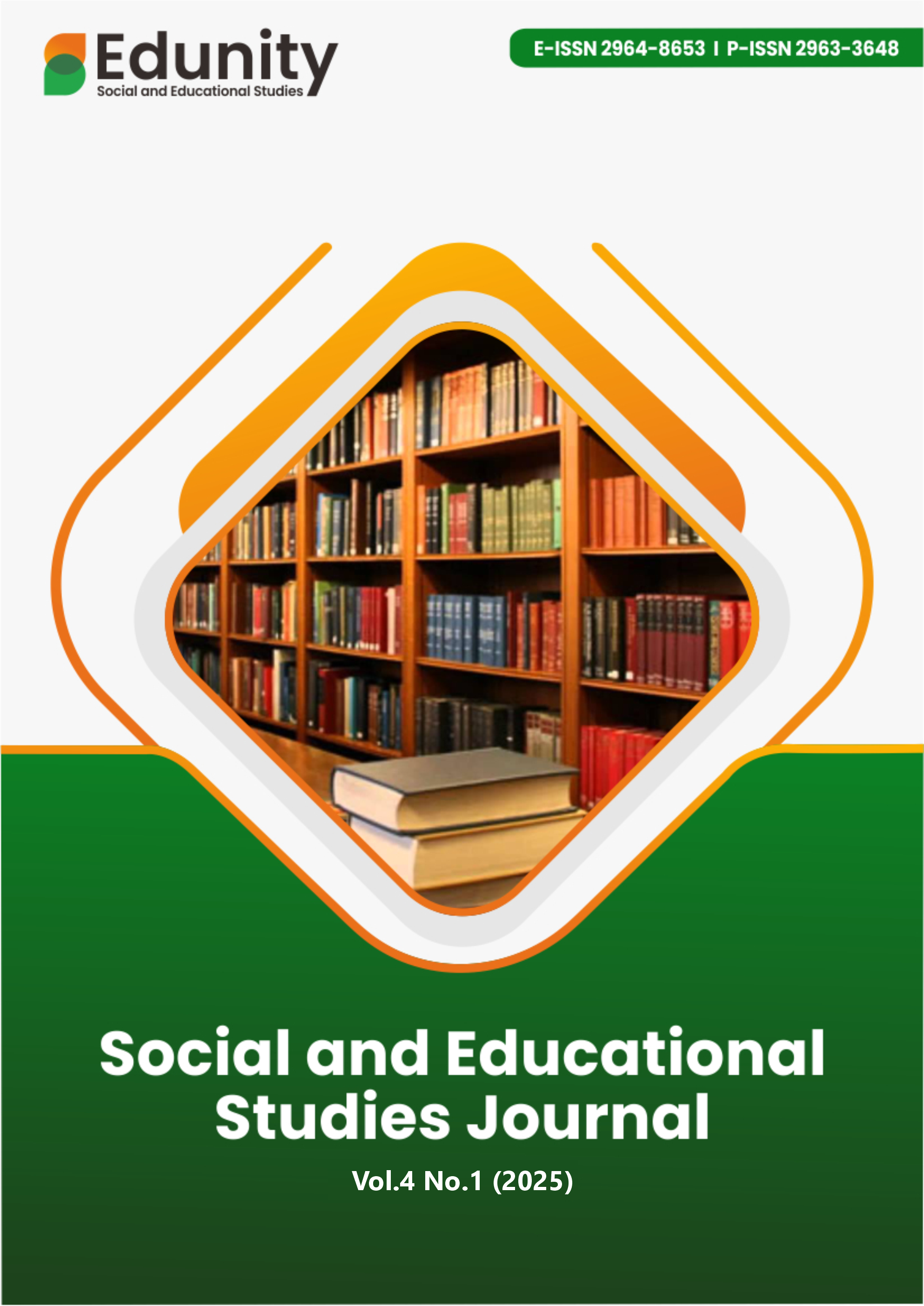Public Participation in Environmental Issues in Bandung City
DOI:
https://doi.org/10.57096/edunity.v4i1.358Keywords:
public participation, environment, development, Bandung city, case studyAbstract
In the contemporary era of globalization, public participation has emerged as a pivotal element in the management of environmental issues. The city of Bandung, in particular, is confronted with a myriad of environmental challenges that necessitate the active involvement of the public. This research endeavors to explore the extent of public participation and its influencing factors in the context of environmental issues in Bandung. Specifically, the objective is threefold: first, to identify forms of public participation; second, to understand the role of stakeholders; and third, to evaluate the effectiveness of communication channels. The study also aims to provide recommendations to improve public involvement in environmental management. The research method is a qualitative approach with a case study method. Data were collected through in-depth interviews, participatory observation, and document analysis, involving various stakeholders, including NGOs, environmental experts, and the general public. The results show that public participation in Bandung is still limited and often formalistic. Despite the existence of diverse communication channels, the level of public awareness and engagement in environmental issues remains inadequate. Stakeholders, comprising government entities and NGOs, play a pivotal role in fostering enhanced participation. This study posits that to augment public participation in the management of environmental issues in Bandung City, a more inclusive and strategic approach is imperative. Recommendations are put forth to refine communication channels and cultivate public awareness, thereby facilitating active contribution to environmental decision-making.
References
Ahmadi, D., & Rachmiatie, A. (2019). Public participation model for public information disclosure. Jurnal Komunikasi: Malaysian Journal of Communication, 35(4), 305–321.
Amri, M. (2020). Improving city government performance in the era of decentralization. Governing Cities: Asia’s Urban Transformation.
Arfiansyah, D., & Han, H. (2020). Bandung Smart City: The digital revolution for a sustainable future. Handbook of Smart Cities, 1–27.
Azizah, N. (2024). 10 Governing garbage: Solid waste management reform in Surabaya. Governing Urban Indonesia, 218.
Gani, R. (2024). The Pattern of Communication in Community Groups Supported by Bandung City Government. Mediator: Jurnal Komunikasi, 17(1), 143–154.
Hadian, D. (2017). The relationship organizational culture and organizational commitment on public service quality; perspective local government in Bandung, Indonesia. International Review of Management and Marketing, 7(1), 230–237.
Indraprahasta, G. S., & Derudder, B. (2019). World City-ness in a historical perspective: Probing the long-term evolution of the Jakarta metropolitan area. Habitat International, 89, 102000.
Kurniawan, H. B., & Roychansyah, M. S. (2023). The Social Equity Of Public Green Open Space Accessibility: The Case Of South Tangerang, Indonesia. Geography, Environment, Sustainability, 16(1), 45–54.
Lee, C. J. (2016). Between a moment and an era: the origins and afterlives of Bandung. In The Rise and Fall of Modern Empires, Volume IV (pp. 377–418). Routledge.
Mandeli, K. (2019). Public space and the challenge of urban transformation in cities of emerging economies: Jeddah case study. Cities, 95, 102409.
Prabowo, O. M., Mulyana, E., Nugraha, I. G. B. B., & Supangkat, S. H. (2023). Cognitive City Platform as Digital Public Infrastructure for Developing a Smart, Sustainable and Resilient City in Indonesia. IEEE Access, 11, 120157–120178.
Rahmasary, A. N., Koop, S. H. A., & Leeuwen, C. J. (2020). Assessing Bandung’s governance challenges of water, waste, and climate change: lessons from urban Indonesia. Integrated Environmental Assessment and Management, 17(2), 434–444.
Soeriaatmadja, A. R., & Wulanningsih, R. (2018). A set of sustainable urban landscape indicators and parameters to evaluate urban green open space in Bandung City. IOP Conference Series: Earth and Environmental Science, 179(1), 12016.
Widya, A. T., Kusuma, H. E., & Lubis, H. A. (2023). Exploring housing quality perception and attitude groups through annoyance on vertical public-housing: Online user review: Case study—Apartment in Bandung City, Indonesia. Journal of Housing and the Built Environment, 38(3), 1651–1688.
Yazid, S. (2019). A Review on the Implementation of Human Rights City Concept and Its Potentials to Contribute to the Achievement of Sustainable Development Goals in Bandung City, Indonesia.

Downloads
Published
Issue
Section
License
Copyright (c) 2025 Ike Junita Triwardhani, Ema Khotimah Kennedy

This work is licensed under a Creative Commons Attribution-ShareAlike 4.0 International License.
Authors who publish with this journal agree to the following terms:
- Authors retain copyright and grant the journal right of first publication with the work simultaneously licensed under aCreative Commons Attribution-ShareAlike 4.0 International (CC-BY-SA). that allows others to share the work with an acknowledgement of the work's authorship and initial publication in this journal.
- Authors are able to enter into separate, additional contractual arrangements for the non-exclusive distribution of the journal's published version of the work (e.g., post it to an institutional repository or publish it in a book), with an acknowledgement of its initial publication in this journal.
- Authors are permitted and encouraged to post their work online (e.g., in institutional repositories or on their website) prior to and during the submission process, as it can lead to productive exchanges, as well as earlier and greater citation of published work.







